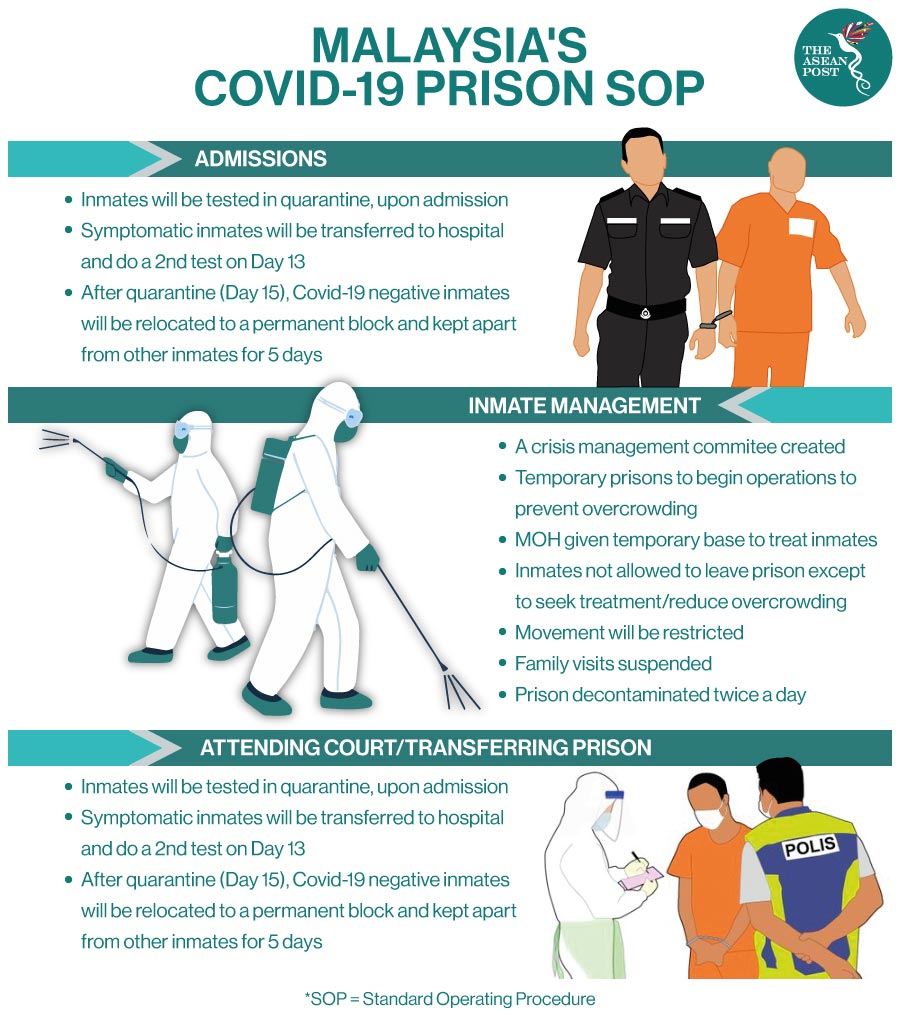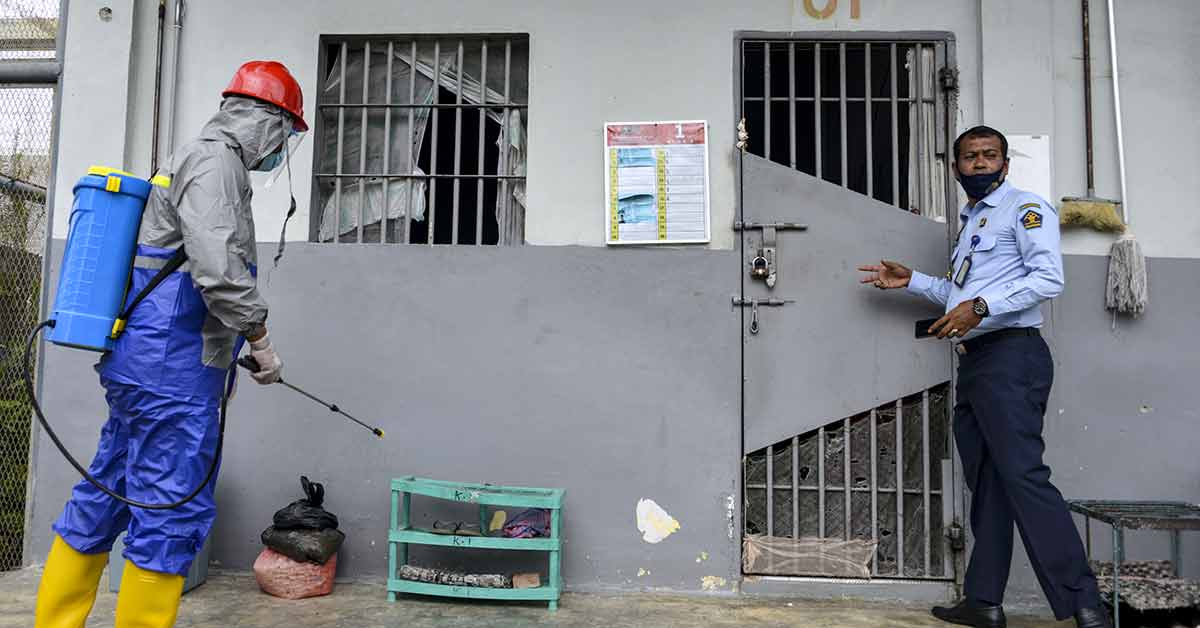The number of COVID-19 infections is fast inching towards the 37 million mark worldwide. Over one million lives have been lost due to the deadly disease, including the elderly, the young and healthy, and even babies. The new coronavirus doesn’t discriminate when it comes to infecting and taking the lives of its victims.
Unfortunately, some are at higher risk of contracting the deadly disease than others, particularly those in vulnerable groups such as communities living in refugee camps and urban slums, as well as those living with chronic or underlying illnesses. Nevertheless, there is one group that is often forgotten; those behind bars.
The COVID-19 pandemic has impacted prisons globally. Outbreaks in jails and detention centres have been reported all around the world. The United Nations Human Rights Office (OHCHR) and a number of rights organisations have warned that overcrowding and unhygienic conditions paired with lack of medical care in prisons could contribute to an increased risk of contracting diseases like the deadly COVID-19 novel coronavirus.
“We, the leaders of global health, human rights and development institutions, come together to urgently draw the attention of political leaders to the heightened vulnerability of prisoners and other people deprived of liberty to the COVID-19 pandemic, and urge them to take all appropriate public health measures in respect of this vulnerable population that is part of our communities,” said the United Nations Office on Drugs and Crime (UNODC), UNAIDS, OHCHR and the World Health Organization (WHO) in a joint statement.
Prisons In ASEAN
“If someone has COVID-19, the spread of the disease will be so rapid. We could all quickly die,” said Wisnu Hani Putranto, head of security at Cipinang penitentiary, located in the capital city of Jakarta in Indonesia.
The prison has the capacity to house around 900 inmates, but it was reported that there are currently 3,600 prisoners living in the facility. Its 300 staff members commute to work daily.
“No one can guarantee the staff are healthy while every day, they need to interact with thousands of inmates. They leave their houses, use public transport or motorbikes, perhaps come into physical contact with someone along the way, and then enter the prison,” Wisnu explained.
A similar situation can be observed in many prisons across Southeast Asia such as in the Philippines and Cambodia. Back in April, Amnesty International shared a video that claims to show extreme overcrowding and “inhumane conditions” in a Cambodian prison.
To prevent the spread of the coronavirus disease in crowded jails, the Philippines has released around 22,000 prisoners as of July, after the virus infected hundreds of detainees across the country.
This can also be seen happening in ASEAN member state Malaysia as the country’s Prisons Department announced a few days ago that it will grant inmates release on license (ROL) in an effort to prevent further COVID-19 infections and to reduce crowding in prisons.
Local media in the country reported that the inmates to be released were minor offenders who were sentenced to less than one year of imprisonment, with less than three months left to serve.
Malaysia has seen a surge in cases in the past week, which some are calling a third COVID-19 wave in the country. However, the bulk of recent infections reported comes from prisons across the country.

As of 7 October, a total of 1,126 active cases of COVID-19 involving prison inmates and staff in Malaysia have been recorded.
Zulkifli Omar, Malaysia’s Prisons Department director-general explained that the coronavirus transmission among inmates began when the Tawau Prison, located in the East Malaysia state of Sabah received a new inmate from Lahad Datu, another city in the same state, who tested positive on 2 October.
“The other cluster was detected in Alor Setar Prison (in Kedah, a northwest state in peninsula Malaysia) on 29 September and the department views seriously the spike in the number of positive COVID-19 cases at the prison, which now is the highest among other prisons,” he added.
“Therefore, the department has taken all necessary measures to comply with the standard operating procedures (SOP) set by the Ministry of Health (MoH) to treat, quarantine and curb the spread of the disease in all aspects of management of prison inmates and staff in the country.”
Under the new SOP for Malaysia’s Prison Department, new detainees in prisons and detention centres will be swabbed for the COVID-19 virus and quarantined for two weeks before being moved to jail blocks.
Related Articles:
